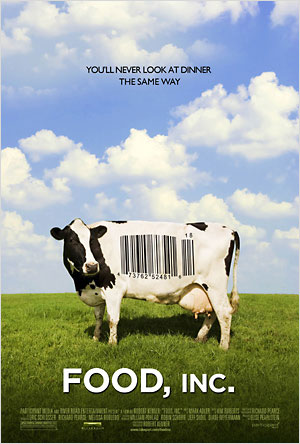Food Inc: Will It Connect the Dots on Food System Problems?
by Matthew Nisbet
Framing Science
Over the past decade, issues such as fast food and obesity, organics and pesticides, genetic engineering, and factory farming have each captured their share of attention from engaged citizens and advocacy groups. Focusing events, such as the 2008 factory farming ballot initiative in California or the 2000 Starlink GM corn episode have generated spikes in news coverage. Popular books such as Eric Schlosser's Fast Food Nation, Michael Pollan's In Defense of Food, and Pollan's NY Times article "Farmer in Chief" have reinforced concerns among an attentive public and generated reactions from policymakers. Still, however, with the exception of obesity, each of these issues remains relatively low on the overall news agenda.
The inability of these food-related issues to break out into wider public focus can be attributed to a number of factors, most notably that none of them fit neatly into a traditional partisan divide as issues such as climate change and stem cell research do. But what has also been missing is a larger meta-frame that ties these trends in the food system together into the perception of a bigger problem.
But now comes Food Inc. The title is a potentially powerful frame device for audiences, connecting each of these food-related issues under one perceptual umbrella. Specifically, the title instantly conveys the film's dominant narrative that responsibility for these issues can be attributed to "big farming" and multi-national corporations who are serving their own private interests rather than the public interest. To correct the problem, tighter regulation, government oversight, and greater responsiveness to citizen and consumer concerns are needed.
As the Food Inc trailer above strongly emphasizes, the relevance of these food issues can be reduced down to a matter of "public accountability," a commonly appearing frame applied to issues of science and the environment. The trailer repeats several key phrases often used to actively translate this frame, including notably "controlled by multi-national corporations" and as the woman at the end of the trailer describes ominously: "The companies don't want the farmers talking, they don't want this story told."
To Read the Rest of the Commentary

No comments:
Post a Comment